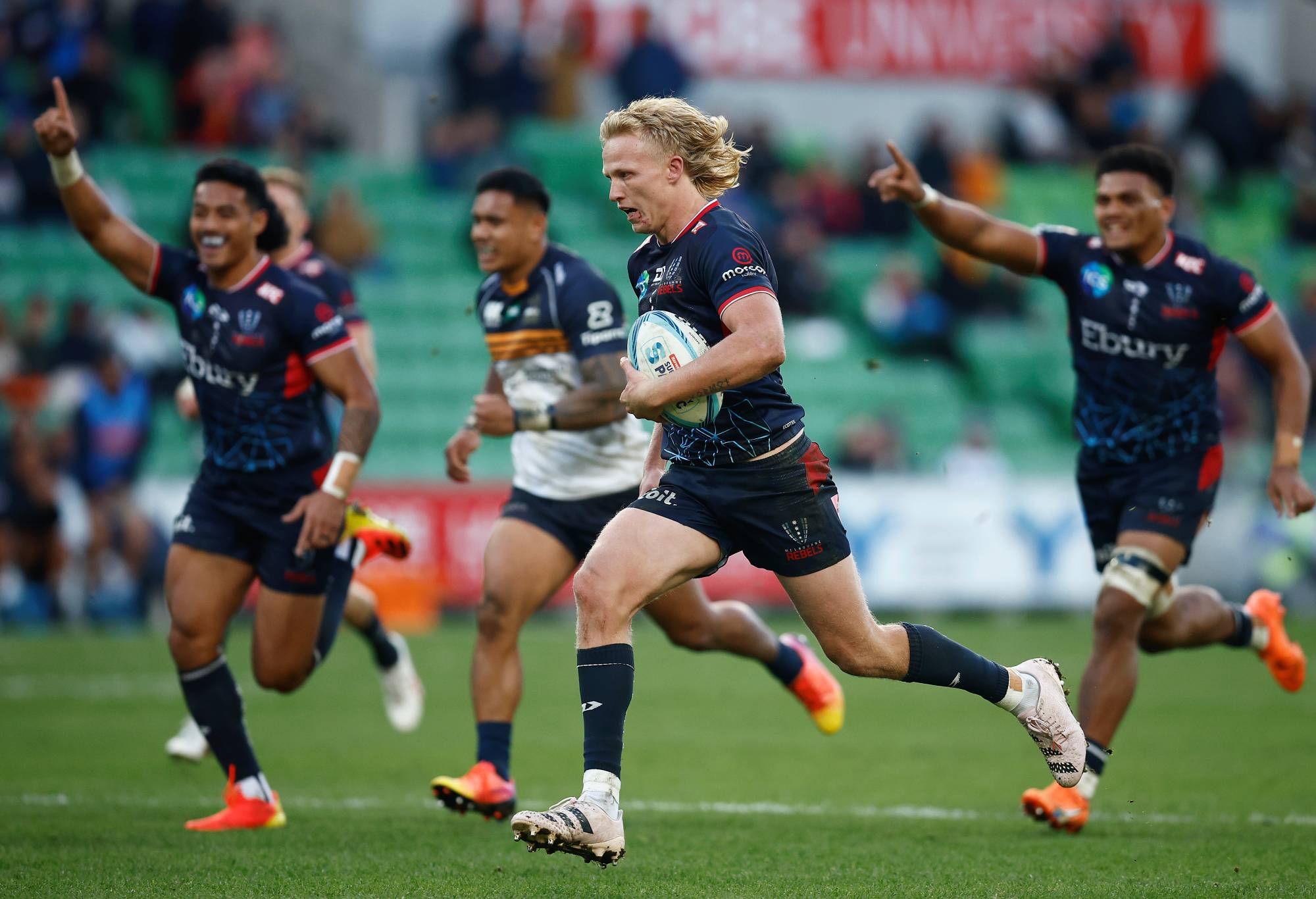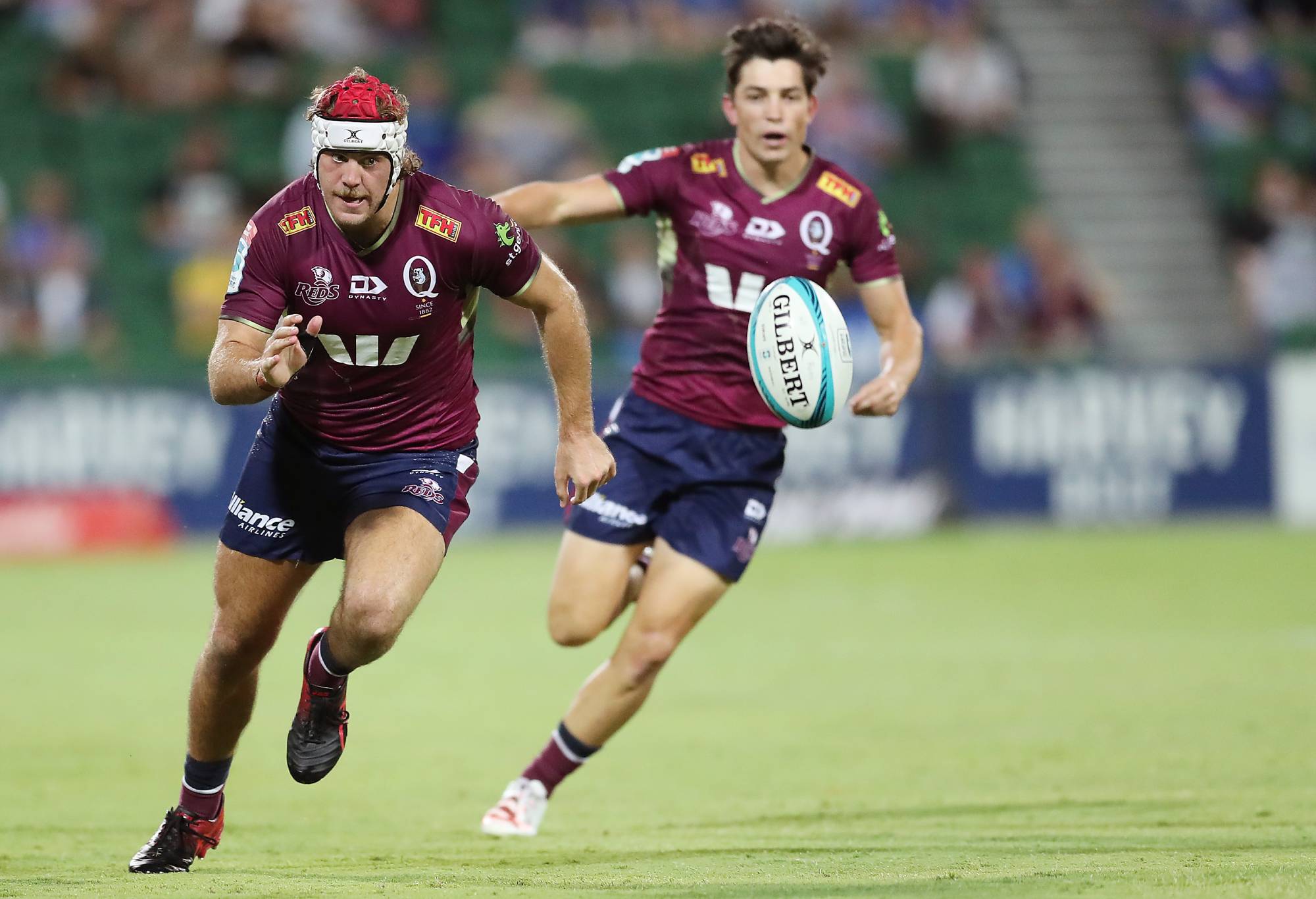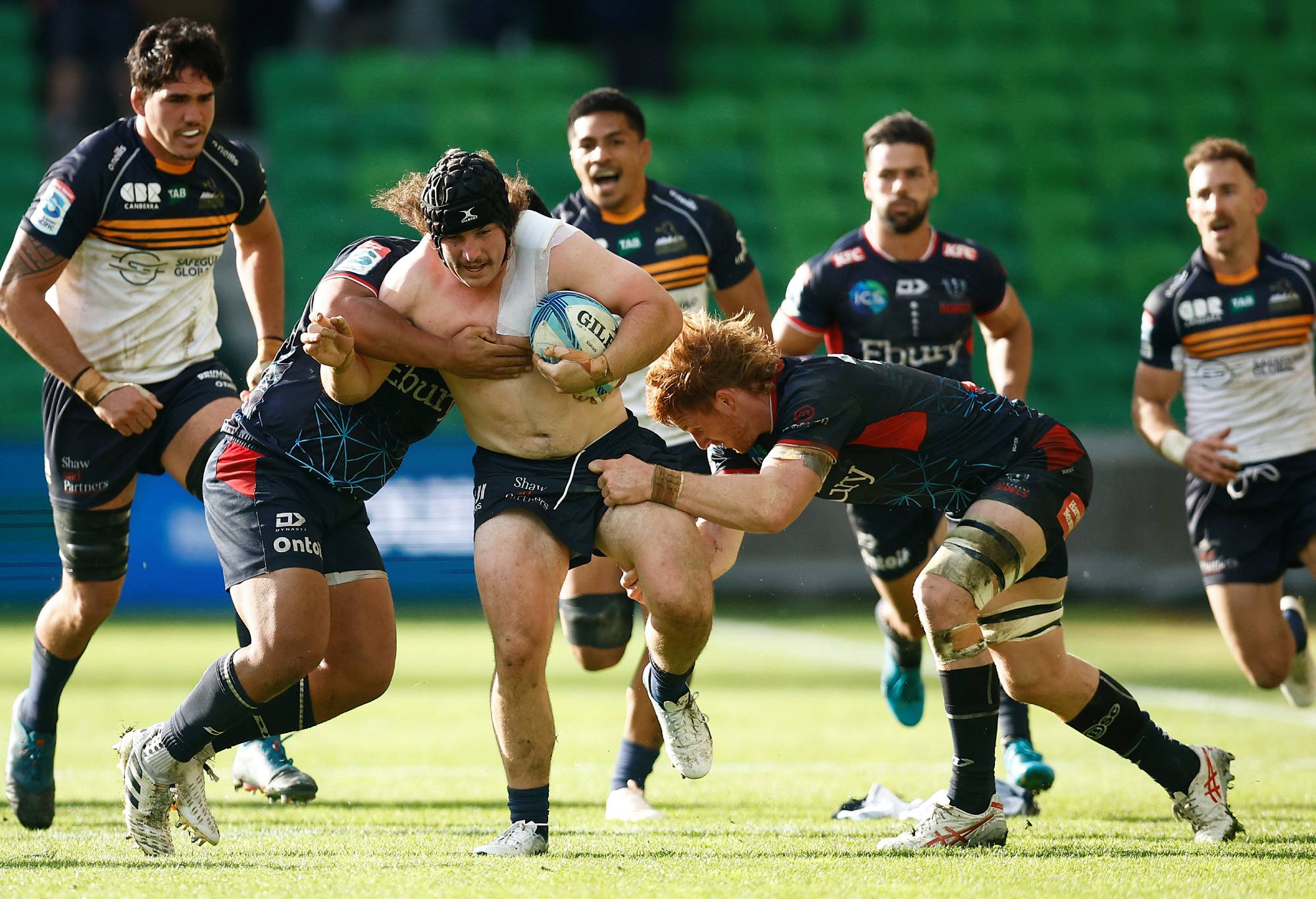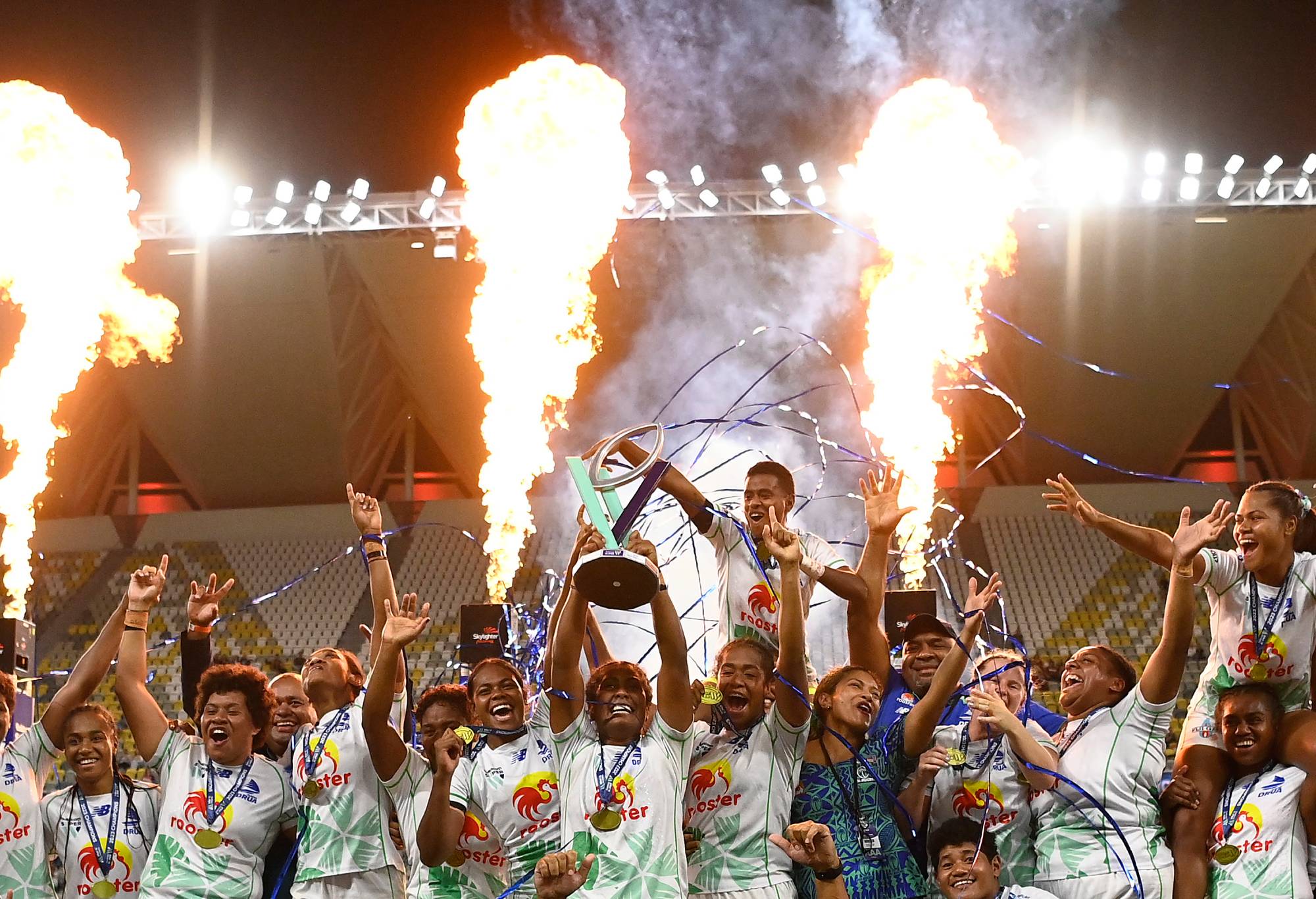Ever since he landed back on Australian shores, Eddie Jones has spoken about the importance of using the ball.
Not over double-digit phases of slow ruck speed and poor transition. Immediately.
“We’ve got to be junkies for winning, not junkies for possession. Possession rugby is dead. It’s dead for the moment and it’s probably going to be dead for a long period of time,” he told an Australian Schoolboys audience in Sydney.
“That’s just stupid to even think like that anymore, and unfortunately there’s that thinking still in rugby.
“The game’s about being fast now. You’ve got 75 per cent of tries being scored in three phases – 75 per cent.
“So why would you keep the ball for 10 phases?”
Jones would have enjoyed what he saw on Sunday as at long last Australia’s Super Rugby sides showed the counter-attacking potency that has been the hallmarks of New Zealand rugby since day dot.
A new sense of ruthlessness was on display, with a couple of brilliant counter-attacking tries from first phase.
Nor were the conditions in Melbourne easy, with the ball greasy after morning showers.
Two young men finding their feet rose to the occasion as Noah Lolesio and Carter Gordon delivered the most encouraging and compelling performances this side of the ditch in years.
At long last the next generation of Australian playmakers has arrived.
Lolesio scored a quick-fire double and stood flat at the line.
More than anything else, he had presence. He wanted to take control, and he did. Now he needs to do it again.

Carter Gordon delivered another commanding performance for the Rebels. Photo: Daniel Pockett/Getty Images
Gordon meanwhile was marvellous.
It was his most complete game of the year. It was also the best performance of an Australian No.10 this year.
His two left-to-right passes which sent Lachie Anderson in to score twice were straight from the Quade Cooper playbook. No other pass in Australia has matched Cooper’s since he burst onto the scene in 2007.
But it wasn’t just that, he played flat and was in motion. It was poetry.
His composure was there for everyone to see while his physicality and durability were also on show as he copped hits and never look fazed.
It was an outstanding performance that will have Jones thinking bullishly about the future. It could be sooner than both know.
Fiji’s statement to the south
The Drua proved to their Super Rugby rivals that beating the Crusaders was no fluke.
On that Saturday back in early March, the Crusaders were without several world class players, including Richie Mo’unga. But they still had enough talent to win.
Over the weekend, the Hurricanes took close to a full strength side with them to Suva and were well-beaten by Mick Byrne’s men. Byrne’s ability to bring the squad together and get them firing shouldn’t be glossed over.
The scoreboard showed a nail-biting affair, which it was, but the Drua left out on the field a few tries and a couple of missed penalties in the opening half.
Their success has shown how difficult traveling to Fiji will be for any opposition team.
Just like a tough trip to South Africa or even across the ditch to New Zealand, playing away from home is half the battle – and fun – in Super Rugby.
The Drua are the best addition to Super Rugby since its exception. Their voice was painfully neglected and missed for decades, but thankfully Super Rugby’s powerbrokers have got their addition right.
Playing at home has been crucial.
Now the decision must be made for Moana Pasifika to play more matches in Apia – and not on a Friday afternoon but over the weekend – so that they stand a chance and their people can breathe new life into the competition.
Playing predominantly in Auckland never felt right.
Apprentice shades master
First blood to Fraser McReight.
It’s not like McReight was starting from miles back at the start of the year, but he had some way to make up on Michael Hooper.
Why? Experience and leadership as well as a massive work rate and physicality.
With time of the essence for Jones, a few core players will be crucial for the returning Wallabies coach.
World Cups, after all, aren’t won on the back of pups.

Fraser McReight’s stocks went up against the Waratahs on Saturday despite their defeat. (Photo by Will Russell/Getty Images)
Yet, having been the best player on the pitch by a mile against the Force, McReight continued his exceptional year by again starring against the Waratahs.
His link play was there to see, his work-rate was top-notch and his timing at the breakdown was superb.
Only former Wallaby Richard Hardwick, who will play for Namibia at the World Cup after featuring last year in their qualification, has come close to McReight for timing at the breakdown this year.
The gap is certainly closing between McReight and Hooper. Both have a role to play at this year’s World Cup.
Rebels find the formula
In years gone by the Rebels have simply wanted a sugar hit.
They’ve signed the first available flashy thing and concentrated on the here and now rather than three years down the track.
But, at long last, the Rebels are learning from their mistakes and it’s bearing fruit. It’s why the decision to offer their coaching team contract extensions is smart business.
Whether or not they make the finals remains to be seen – three of their final four games are very much winnable – they are on the right track.
It has started with getting their tight five in order.

A shirtless Lachlan Lonergan is tackled by the Rebels on the stroke of half-time at AAMI Park, on May 07, 2023, in Melbourne. Photo: Daniel Pockett/Getty Images
They’ve got depth in the front-row. The losses of Taniela Tupou (Reds) and Angus Bell (Waratahs) has shown that Australia’s Super Rugby sides are still far too dependent on one or two tight-five forwards.
It’s why the Waratahs and Reds will likely not progress deep in 2023 because they don’t have the muscle up front.
Missing element that needs to be addressed
Queensland once again just fell short in the Super W final as the Fijiana Drua claimed back-to-back tournaments.
It was a stunning victory by the Drua, who had faced adversity through the campaign due to the financial struggles of their Union. They need to be addressed urgently.
What else must be addressed moving forward is a crossover finals campaign with New Zealand’s Super Rugby Aupiki.

The Drua celebrate after defeating the Queensland Reds to win the Super W at Queensland Country Bank Stadium on May 06, 2023 in Townsville. (Photo: Ian Hitchcock/Getty Images)
At bare minimum the respective winner’s from each competition should play, but in reality the two finalists and even the four making up the semi-finals should play in a quick-fire knockout comp.
It would help give the competition’s more credibility, advance the women’s game and include another final, which is where the cream rises to the top.
Christy Doran’s Australian Super Rugby team of the week:
James Slipper, Lachlan Lonergan, Harry Johnson-Holmes, Nick Frost, Trevor Hosea, Rob Valetini, Fraser McReight, Langi Gleeson, Tate McDermott, Carter Gordon, Lachie Anderson, Lalakai Foketi, Len Ikitau, Suliasi Vunivalu, Tom Wright.
































































































